This easy gluten-free pie crust has a beautifully light and flaky texture you’ll love! No chilling time required, this homemade pie dough comes together in only 15 minutes with just 5 simple ingredients and is also dairy-free! Keep this handy to bake up all your holiday pies (think pumpkin pie or pecan pie)!
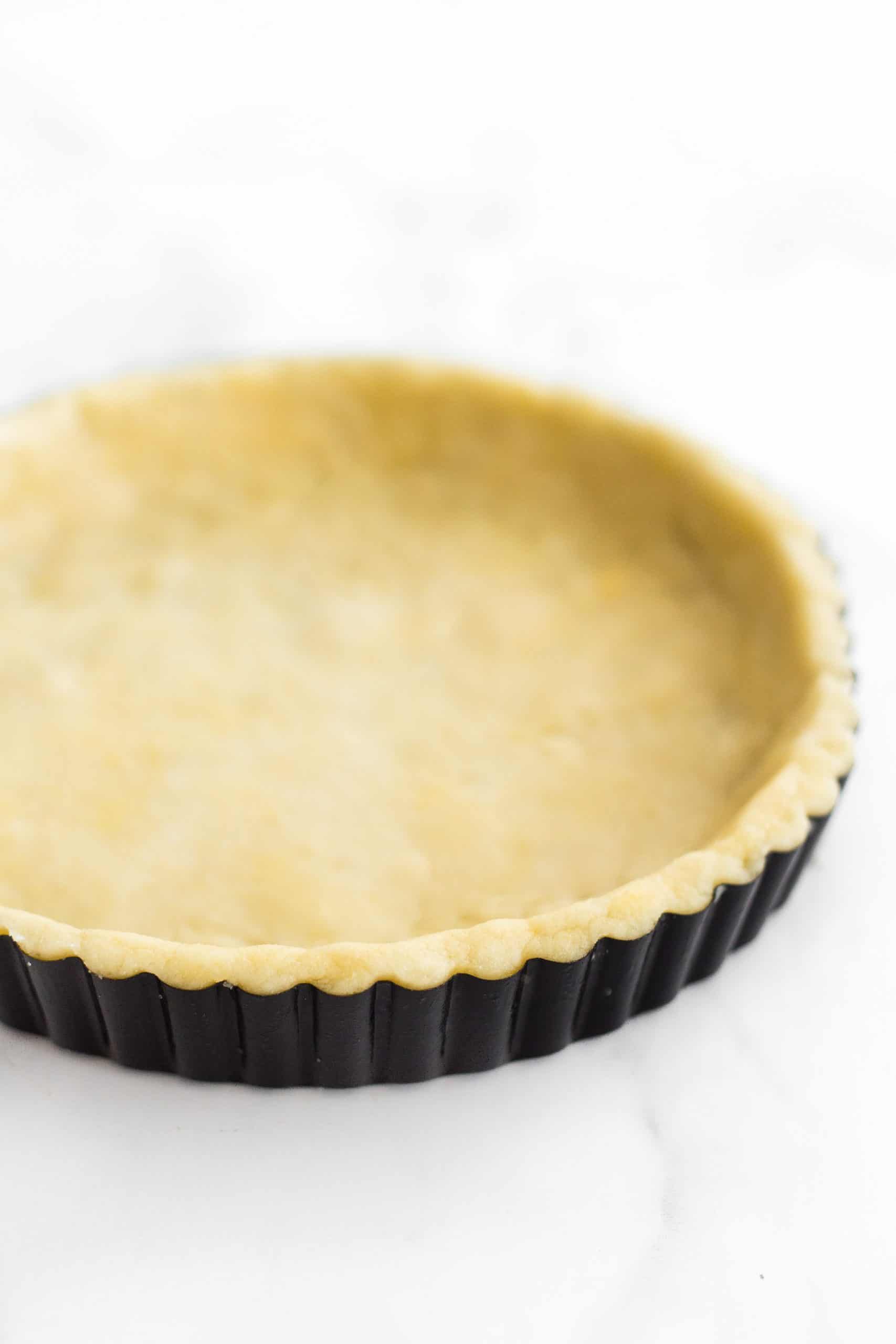
Want to save this recipe?
Enter your email & I’ll send it to your inbox. Plus, get great new recipes from me every week!
Jump to:
- Homemade Gluten-Free Crust Recipe
- The Secret to Perfect Flaky Pie Crust
- Why This Recipe Works:
- Ingredients You’ll Need:
- Recipe Notes/Substitutions:
- How to Make Gluten-Free Pie Crust (Step by Step):
- 7. Par-Bake the Crust Dough
- Dish by Dish Tips/Tricks:
- Recipe FAQs:
- Gluten-Free Pies to Make:
- Other Basic Recipes You’ll Find Handy:
- Gluten-Free Dessert Recipes to Enjoy:
- Easy Gluten-Free Pie Crust Recipe (Dairy-Free)
Homemade Gluten-Free Crust Recipe
Since we started cooking gluten-free at home because my husband Juan was diagnosed with Celiac disease, I’d been reluctant to make my own homemade gluten-free pie crust.
It was much easier to buy pre-made pie crust, but most of the store-bought regular pie crust versions use wheat flour and have milk or lactose in them.
Since Juan developed a lactose intolerance earlier this year and we went dairy-free too, I decided that it was finally time to try my hand at making my own crust.
The Secret to Perfect Flaky Pie Crust
I remember learning how to make pie crust at my cooking class a long time ago before we started eating gluten-free, and one thing my professor Pelusa Molina told us was that we had to cut the chilled butter into the flour.
The reason for “cutting in” the solid butter into the flour is to create a flaky texture, which is developed as small chunks of butter remains in the flour, keeping the butter separate from the dry ingredients when baked – and this is what creates the flaky texture.
In this case, we’re making a gluten-free and dairy-free pie crust, so I’m using chilled coconut oil instead of butter (you could also use chilled palm shortening). It’s highly important that the oil or shortening or butter you are using is chilled and hard, so that you can cut into it without it melting.
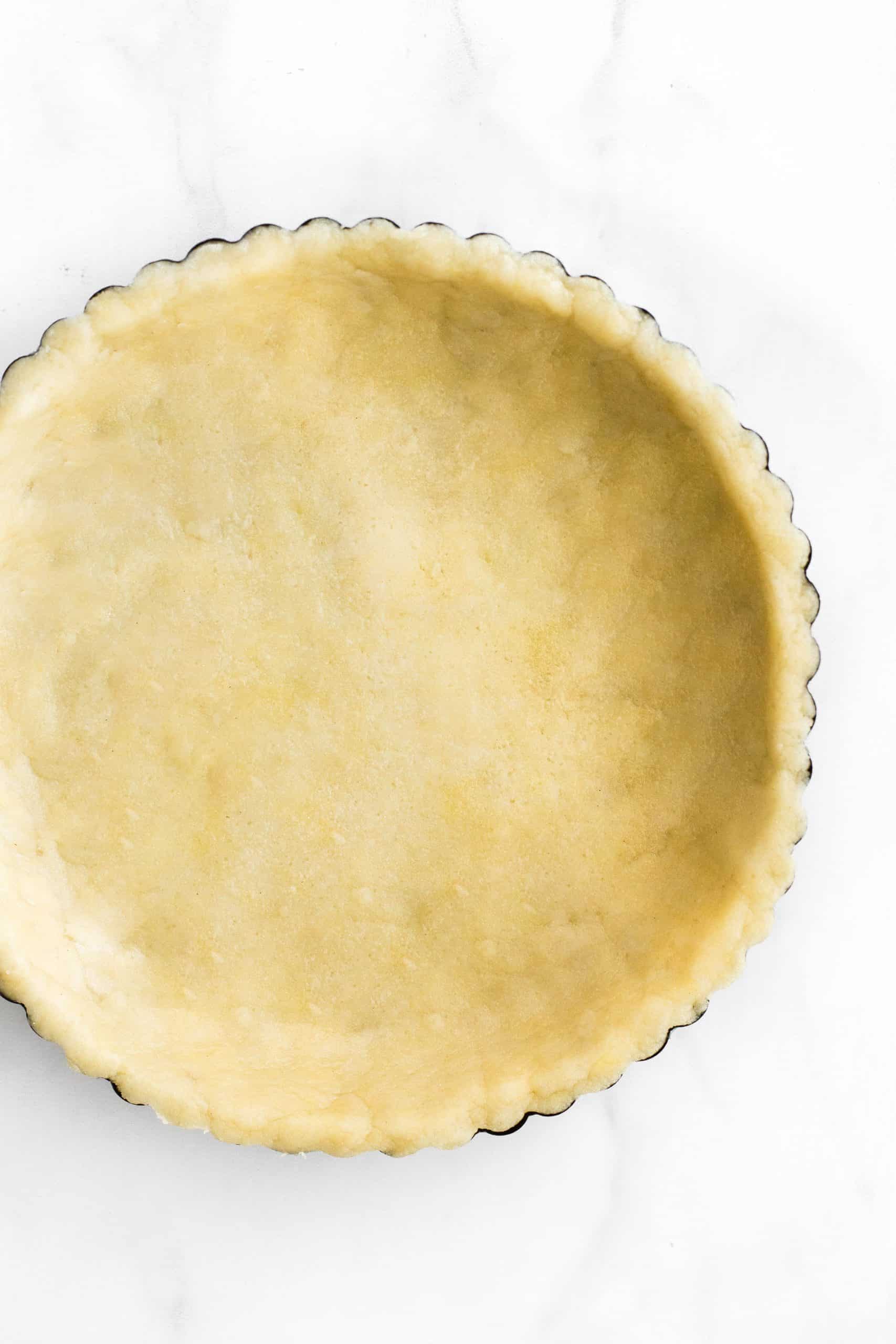
Why This Recipe Works:
- Simple Ingredients: As you can see from the photo of the ingredients below, you only need 6 ingredients (including water!) for this gluten-free dairy-free pie crust recipe. You probably already have all these on hand, which means that making this pie crust doesn’t require fancy or expensive ingredients.
- Only 15 Minutes and No Chilling Time: This gluten-free pie crust recipe also only requires 15 minutes of hands-on time, and zero chilling is required once assembled, which is a double win (for me at least)!
- Amazing Flaky Texture: You won’t believe just how flaky this pie crust turns out. It’s the perfect pie crust for making all your holiday pies – both sweet pies or savory alike! Try this flaky gluten-free pie crust for gluten-free pies such as apple pie, pecan pie, pumpkin pie, or cranberry pie – I know you’re gonna love it!
- Totally Gluten-Free & Dairy-Free: The best part is that this pie crust is 100% gluten-free and dairy-free, which means that even those with Celiac disease, or who are intolerant to gluten and lactose can enjoy it without any issues!
Ingredients You’ll Need:
Here’s a visual overview of the ingredients required to make this gluten-free pie crust recipe.
(For exact measurements, please scroll down to the printable recipe card at the bottom of the post.)
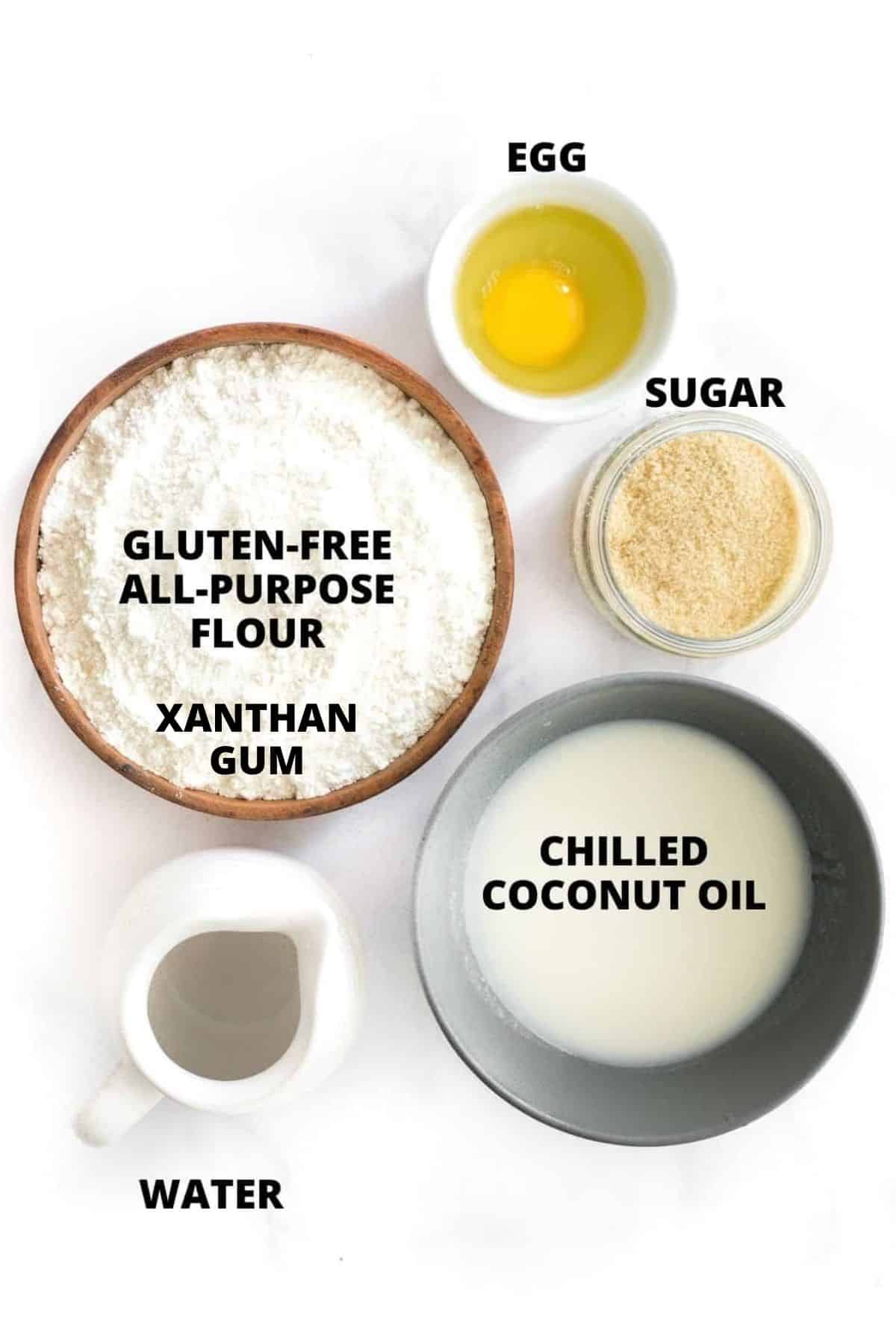
Recipe Notes/Substitutions:
- Gluten-free All-Purpose Flour Blend: I recommend that you use a gluten-free flour blend made with lighter flours or starches such as white rice flour, corn starch, or tapioca starch. I do NOT recommend a gluten-free flour blends that includes denser flours such as garbanzo bean flour.
- Xanthan Gum: Xanthan gum is the replacement for gluten in gluten-free flours, and it is necessary to help the ingredients bind together properly. Make sure you add xanthan gum if you flour blend does not already include it.
- Sugar: I used light brown sugar in this gf pie crust recipe, but you can also use white sugar, cane sugar, dark brown sugar or coconut sugar if you prefer. If you are diabetic or insulin-resistant, I highly recommend that you use granulated monkfruit sweetener (a 1:1 substitute for normal sugar) or you can leave out the sugar completely.
- Coconut Oil: I prefer using refined coconut oil in my cooking as it has a more neutral taste compared to extra virgin coconut oil. You may also use dairy-free butter (vegan butter) if you prefer. Alternatively, if you are not lactose-intolerant, feel free to use chilled butter in equal amounts. You can also use chilled vegetable shortening. I do NOT recommend substituting coconut oil for other vegetable oils that do not solidify when chilled as you need the coconut oil to be solid when cutting it into the flour. Alternatively, if you are not lactose-intolerant, feel free to use cold butter instead.
- Egg: The egg is necessary as a binder for the dough. I personally have not tried making this pie crust dough using an egg-substitute or egg-replacer, so I don’t know if it will work without the egg. (If you do make this without an egg, please let me know how it goes in the comments below, thank you!)
- Ice Water: It’s important that the water is cold when you use it to keep the coconut oil solid. This will help make the crust flaky. (Depending on the humidity of where you live and the type of flour blend used, you may not need to use all the ice water. Add 1 tablespoon of water at a time, mixing until you get a dough that holds together).
How to Make Gluten-Free Pie Crust (Step by Step):
1. Whisk Flour and Sugar
In a large mixing bowl, whisk the all purpose gluten-free flour and sugar until fully combined.
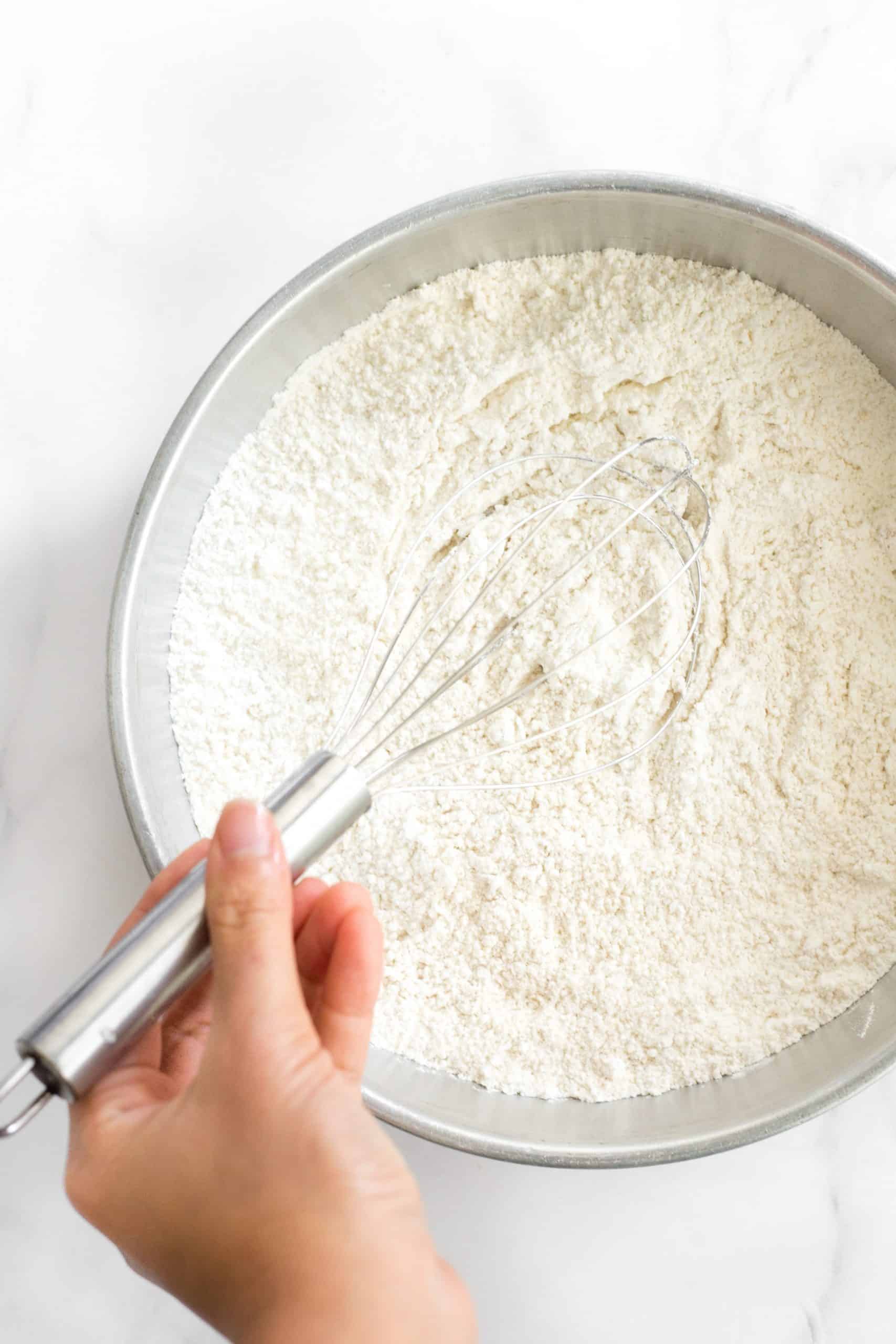
2. Cut Coconut Oil into Flour
Add chilled coconut oil and cut the coconut oil into the flour mixture (either with a pastry cutter, two knives, or use the back of a fork to press the coconut oil into the flour). You’ll get an off-white mixture of coarse crumbs with the texture of coarse sand.
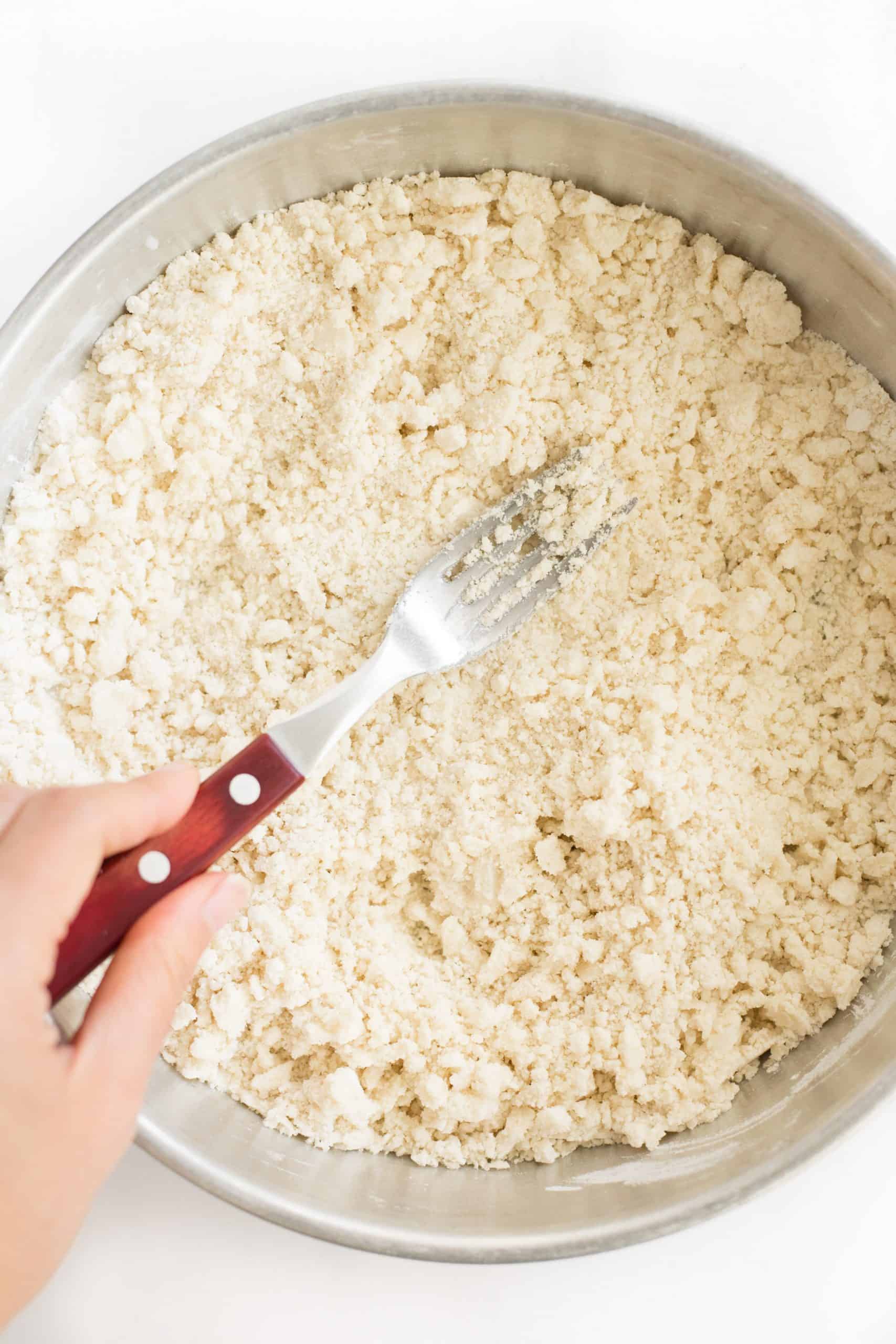
3. Add Egg
Add the beaten egg and mix well. The mixture will still be crumbly, but will be slightly pale yellow now.
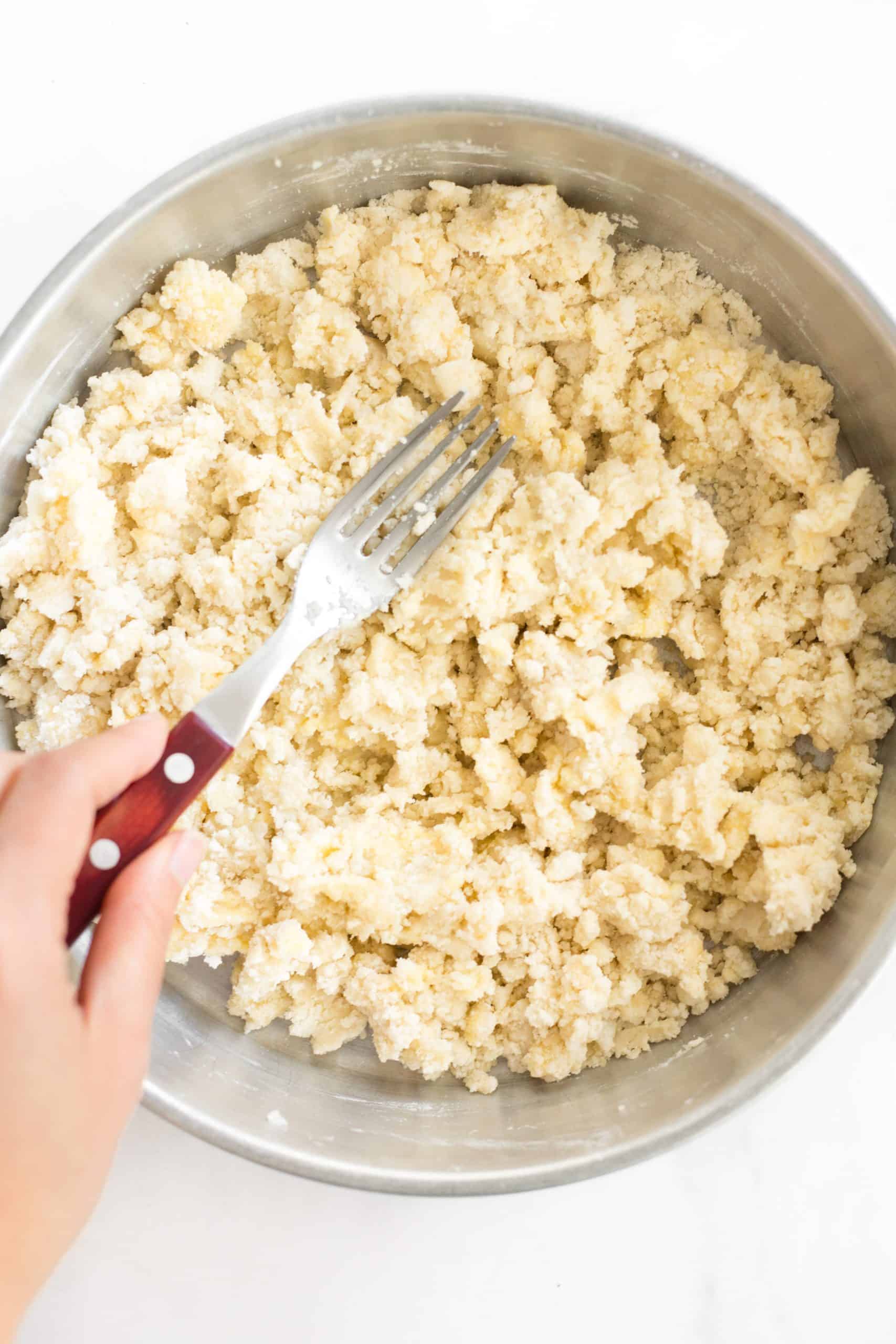
4. Prepare the Dough
Add the ice water 1 tablespoon at a time, mixing with a spoon until you get a dough that holds together.
(TIP: You may not need to use all the ice water. Make sure to add enough water so the dough doesn’t fall apart, as it’s better to have a dough that’s a little too moist than too dry).
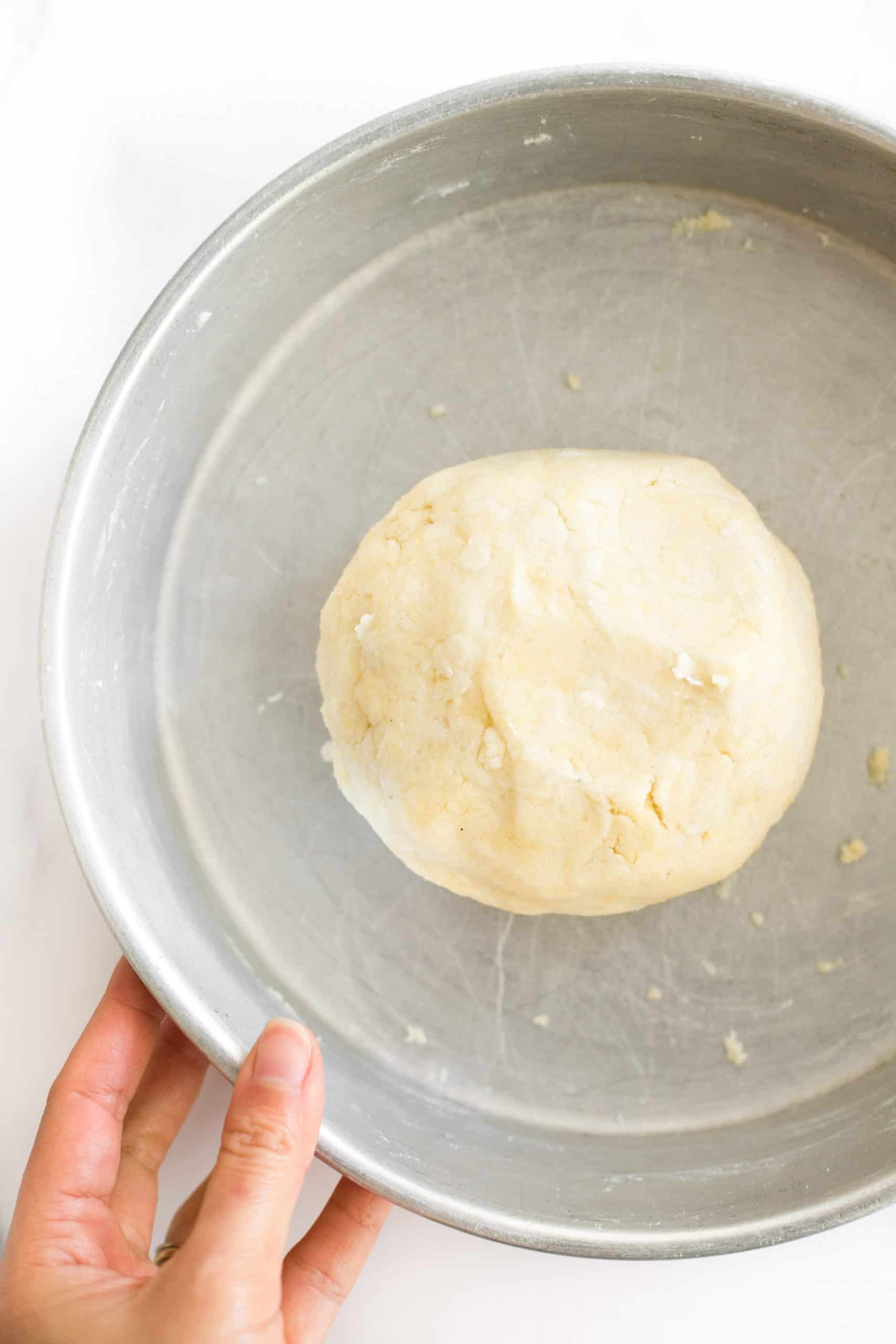
5. Roll out the Dough
Shape dough into a disc and then use a rolling pin to roll out the dough between two pieces of parchment paper until the dough is slightly larger than your pie tin.
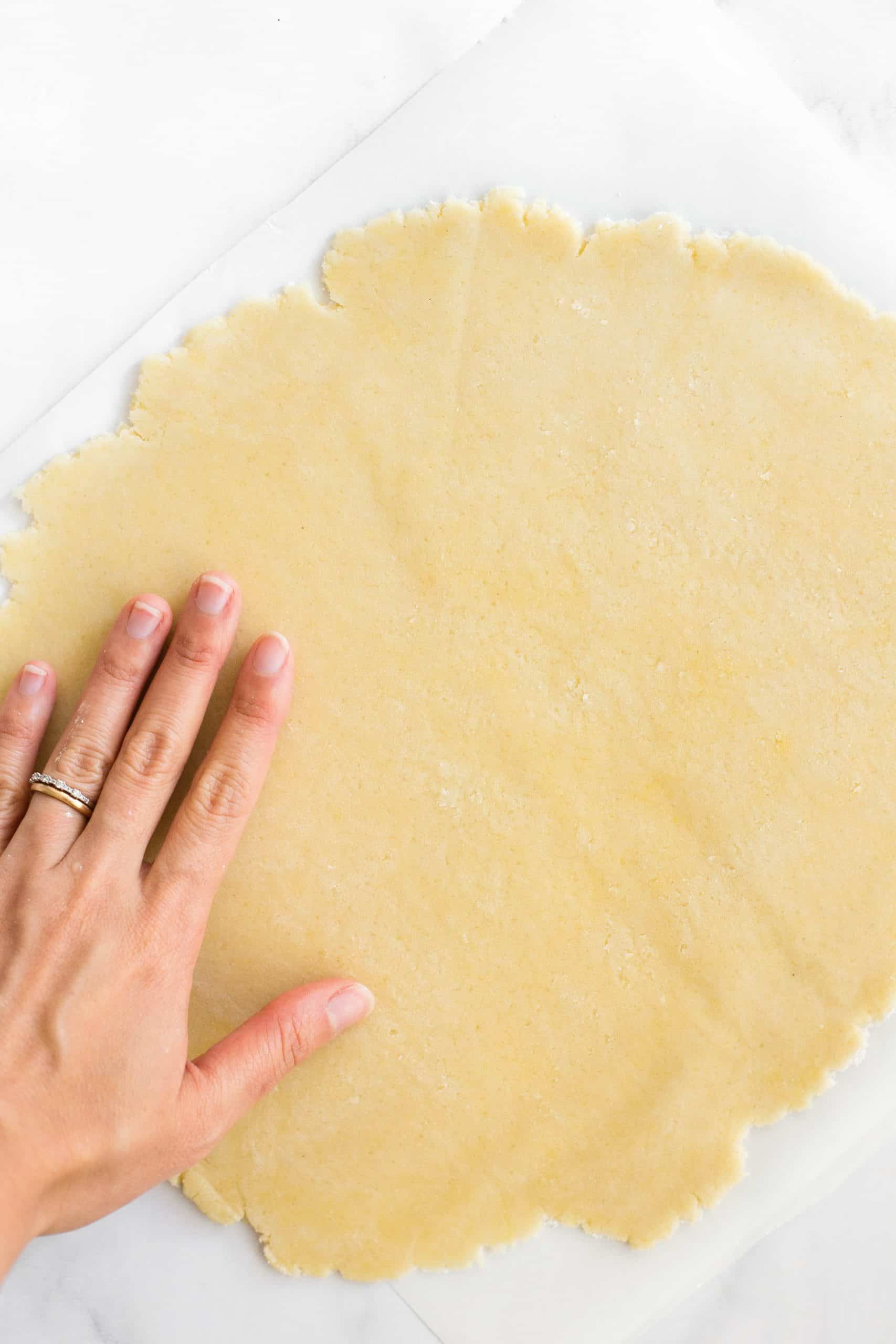
6. Press Dough into Pie Tin
Remove the top piece of parchment paper and then place your hand below the bottom piece of parchment to flip the dough onto your pie tin, then slowly peel off the remaining parchment paper as you press the gluten-free pie crust dough into the tin.
Note that the dough may break, but don’t worry as you can easily press the dough back into place (it will still look beautiful once baked).
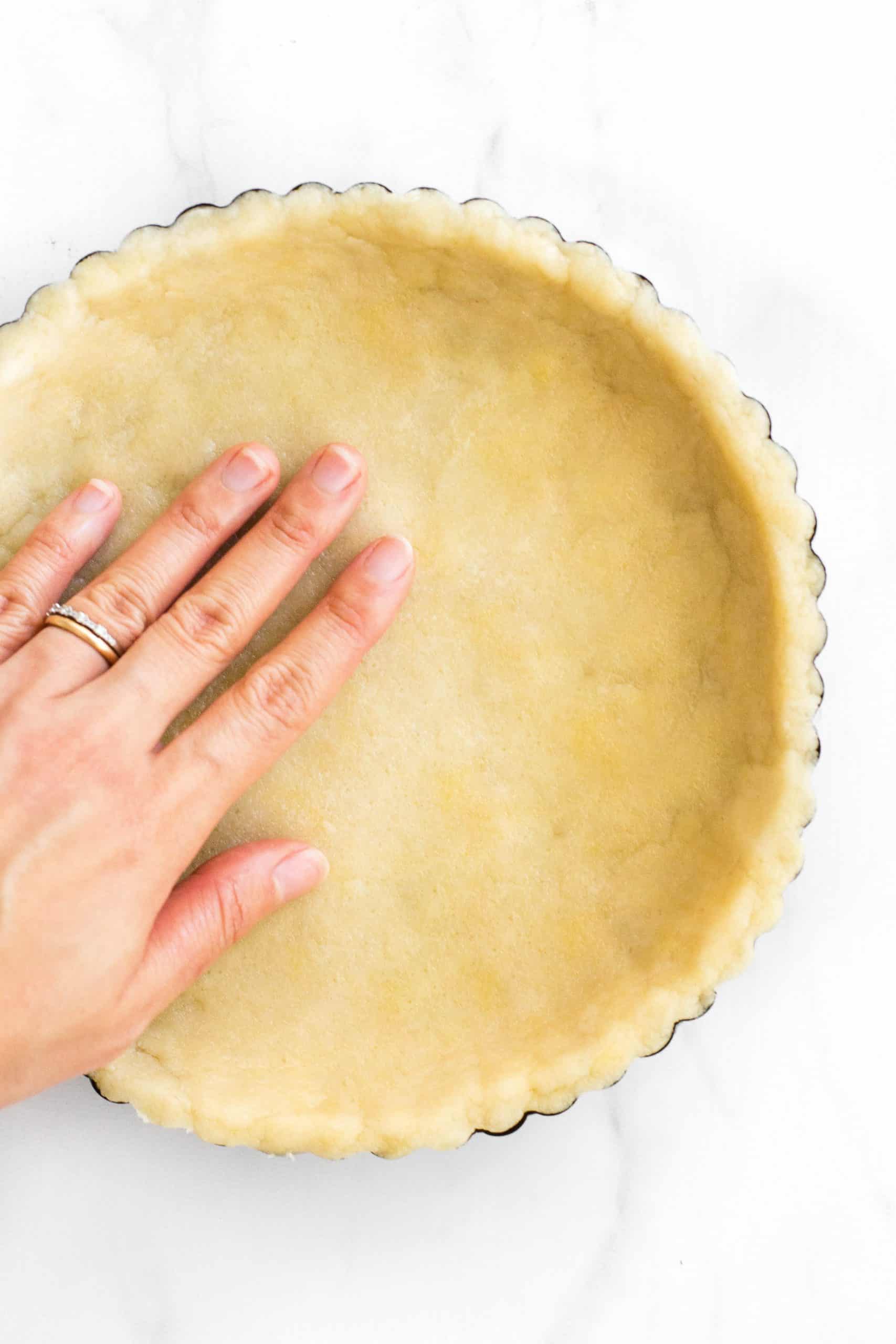
7. Par-Bake the Crust Dough
Par-bake the pie crust dough for 10 to 15 minutes at 425F to firm it up slightly before adding your filling.
Alternatively, if you need a fully-baked pie crust for the recipe you’re making, simply bake for 30 minutes at 425F until the crust is firm and the edges are golden brown.
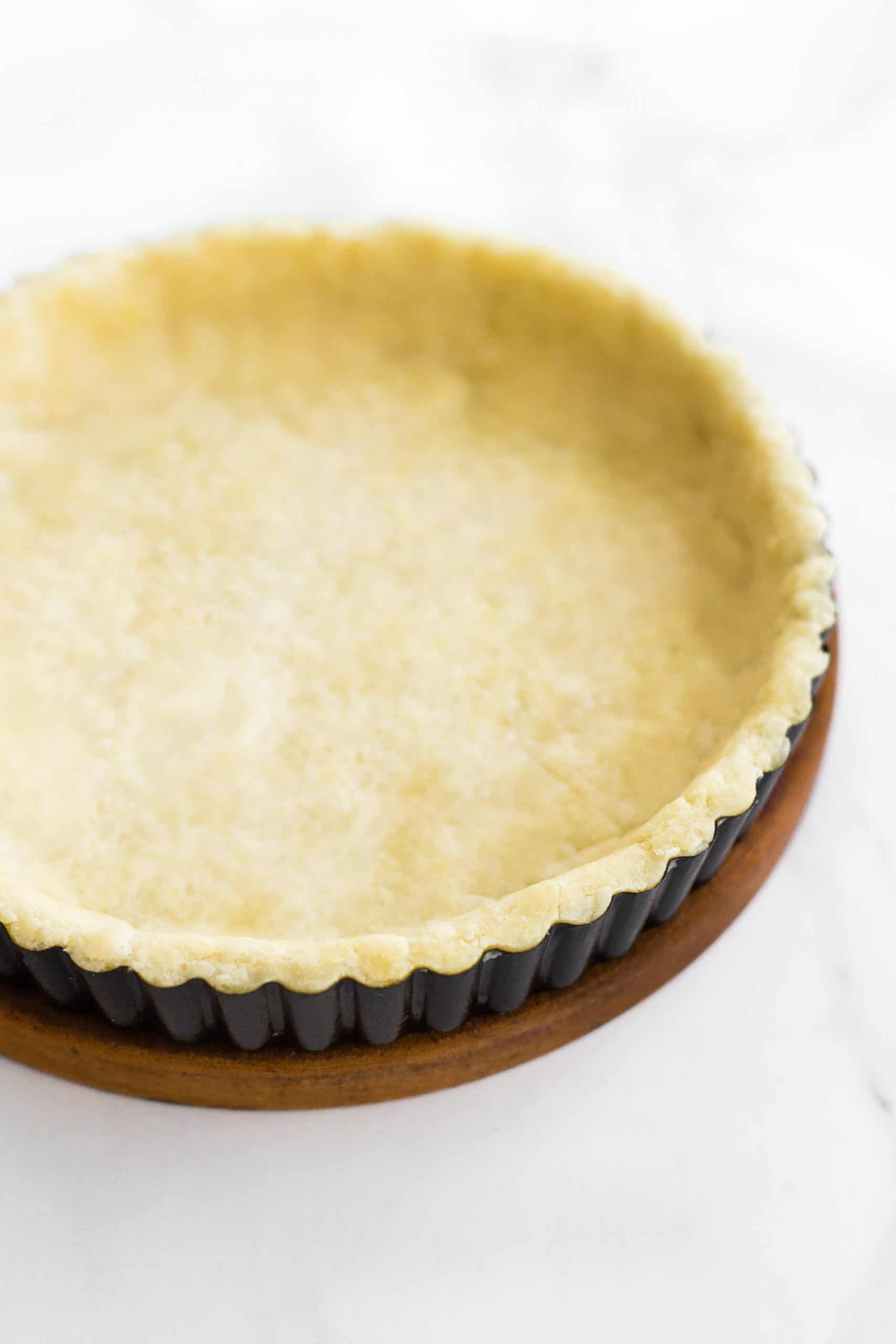
Dish by Dish Tips/Tricks:
- Savory Pie Crust: If you plan on using the crust for a savory pie, simply leave out the sugar and add 1/2 teaspoon of salt instead.
- “Cutting In” The Coconut Oil: You can either use a pastry cutter or two knives to cut at the solid coconut oil until it disintegrates into the flour. Alternatively, I’ve found that using the back of a fork to press down into the coconut oil also does the job, and is less tiring than using two forks.
- Pie Tin: I like using a 9-inch pie tin with a removable bottom as it makes removing the entire pie from the pie pan much easier. The ridges of the pie tin also make it easier to shape the edges of the pie crust (all you need to do is press the crust into the tin’s edges, no need for any fancy techniques)!
- Brush Edges with Egg Wash: Since this dairy-free pie crust dough doesn’t use butter and tends to bake pretty pale in color, I like to brush the exposed edges of the unbaked crust with beaten egg so that as it cooks it turns a light golden brown.
- Making Double Crust Pie: If your pie recipe requires a double crust, make sure you double this crust recipe (as the recipe is meant to make a single pie crust).
- To Par-Bake the Crust: If you need to blind bake the crust, I recommend par-baking the dough for 10 to 15 minutes at 425F to firm it up slightly before filling it.
- To Pre-Bake the Crust: If you are making this homemade gluten-free pie crust for a recipe that calls for a fully-baked pie crust, simply brush the exposed edges with egg wash, and then bake the crust for 30 minutes at 425F until the crust is firm and the edges are golden brown. The baked crust will keep for up to 5 days in the refrigerator.
Recipe FAQs:
If you are making this pie crust for a recipe that calls for a fully-baked pie crust, brush the exposed edges with egg wash, then bake the crust for 30 minutes at 425F until crust is firm and edges are golden brown. The baked crust will keep for up to 5 days in the fridge. You may also par-bake the crust for 10 to 15 minutes before pouring in the pie filling and then continue to bake the entire pie (filling included).
Yes, you can freeze the gluten-free pie dough if you are not planning on baking it immediately. Simply cover the crust with plastic wrap, and then cover the whole pie tin with aluminium foil. Store the crust dough in the freezer for up to 2 months. When ready to bake your pie crust, remove the plastic wrap and foil and then let the dough thaw for 15 minutes at room temperature while you preheat the oven.
Gluten-Free Pies to Make:
- Sweet Potato Pie (Gluten-Free, Dairy-Free)
- Pecan Pie (Gluten-Free, Dairy-Free)
- Lemon Meringue Pie (Gluten-Free, Dairy-Free)
- Blueberry Pie (Gluten-Free, Dairy-Free)
- Cranberry Pie (Gluten-Free, Dairy-Free)
Other Basic Recipes You’ll Find Handy:
- 5-Minute Homemade Almond Meal
- 5-Minute Homemade Cashew Flour
- Homemade Gluten-Free Tart Crust (Dairy-Free)
- Homemade Cashew Milk (Gluten-Free, Vegan)
- Homemade Almond Milk (Gluten-Free, Vegan)
- 10-Minute Microwave Lemon Curd (Gluten-Free, Dairy-Free)
- Homemade Pumpkin Puree (Gluten-Free, Vegan)
- Homemade Applesauce (Gluten-Free, Vegan)
- Soft, Fluffy Gluten-Free Bread (Gluten-Free, Dairy-Free)
Gluten-Free Dessert Recipes to Enjoy:
P.S. If you try this recipe, I’d love for you to leave a star rating below, and/or a review in the comment section further down the page. I always appreciate your feedback. Be sure to check out my entire Recipe Index for all the recipes on the blog. You can also follow me on Pinterest, Facebook or Instagram! Sign up for my Email List to get fresh recipes in your inbox each week!
Print
Easy Gluten-Free Pie Crust Recipe (Dairy-Free)
- Total Time: 30 minutes
- Yield: 1 pie crust 1x
- Diet: Gluten Free
Description
This easy gluten-free pie crust recipe has a beautifully light and flaky texture you’ll love! No chilling time required, this dough comes together in only 15 minutes with just 5 simple ingredients and is also dairy-free! Keep this handy to bake up all your sweet or savory pies (think pumpkin pie or pecan pie), because you’ll be making this over and over again!
Ingredients
- 2 cups gluten-free all-purpose flour + more for dusting
- 3/4 teaspoon xanthan gum (omit if you flour blend already includes it)
- 2 tablespoons light brown sugar
- 1/2 cup coconut oil, chilled and solid
- 1 egg, beaten
- 2/3 cup ice water, amount necessary
Instructions
- Whisk Flour and Sugar: In a large mixing bowl, whisk the gluten-free flour and sugar until fully combined.
- Cut Coconut Oil into Flour: Add chilled coconut oil and cut the coconut oil into the flour (either with a pastry cutter, two knives, or use the back of a fork to press the coconut oil into the flour). You’ll get an off-white crumbly mixture with the texture of coarse sand.
- Add Egg: Add the beaten egg and mix well. The mixture will still be crumbly, but will be slightly pale yellow now.
- Prepare the Dough: Add cold water 1 tablespoon at a time, mixing with a spoon until you get a dough that holds together (better to have a dough that’s a little too moist than too dry).
- Roll out Dough: Shape dough into a disc and then roll out the dough between two pieces of parchment paper until the dough is slightly larger than your pie tin.
- Press Dough into Pie Tin: Remove the top parchment paper and then place your hand below the bottom piece of parchment to flip the dough onto your pie tin, then slowly peel off the remaining parchment paper as you press the dough into the tin. Note that the dough may break, but don’t worry as you can easily press the dough back into place (it will still look beautiful once baked).
Notes
Gluten-free All-Purpose Flour Blend: I recommend that you use a gluten-free flour blend made with lighter flours or starches such as white rice flour, corn starch, or tapioca starch. I do NOT recommend a gluten-free flour blends that includes denser flours such as garbanzo bean flour.
Xanthan Gum: Xanthan gum is the replacement for gluten in gluten-free flours, and it is necessary to help the ingredients bind together properly. Make sure you add xanthan gum if you flour blend does not already include it.
Sugar: I used light brown sugar in this recipe, but you can also use white sugar, cane sugar, dark brown sugar or coconut sugar if you prefer. If you are diabetic or insulin-resistant, I highly recommend that you use granulated monkfruit sweetener (a 1:1 substitute for normal sugar) or you can leave out the sugar completely.
Coconut Oil: I prefer using refined coconut oil in my cooking as it has a more neutral taste compared to extra virgin coconut oil. You may also use dairy-free butter (vegan butter) if you prefer. Alternatively, if you are not lactose-intolerant, feel free to use chilled butter in equal amounts. You can also use chilled vegetable shortening. I do NOT recommend substituting coconut oil for other vegetable oils that do not solidify when chilled as you need the coconut oil to be solid when cutting it into the flour. Alternatively, if you are not lactose-intolerant, feel free to use cold butter instead.
Egg: The egg is necessary as a binder for the dough. I personally have not tried making this pie crust dough using an egg-substitute or egg-replacer, so I don’t know if it will work without the egg. (If you do make this without an egg, please let me know how it goes in the comments below, thank you!)
Ice Water: It’s important that the water is cold when you use it to keep the coconut oil solid. This will help make the crust flaky. (Depending on the humidity of where you live and the type of flour blend used, you may not need to use all the ice water. Add 1 tablespoon of water at a time, mixing until you get a dough that holds together).
Savory Pie Crust: If you plan on using the crust for a savory pie, simply leave out the sugar and add 1/2 teaspoon of salt instead.
Pie Tin: I like using a 9-inch pie tin with a removable bottom as it makes removing the entire pie from the tin much easier. The ridges of the pie tin also make it easier to shape the edges of the pie crust (all you need to do is press the crust into the tin’s edges, no need for any fancy techniques)!
To Par-Bake the Crust: I recommend par-baking the crust for 10 to 15 minutes at 425F to firm it up slightly before filling it.
To Pre-Bake the Crust: If you are making this pie crust for a recipe that calls for a fully-baked pie crust, simply brush the exposed edges with egg wash, and then bake the crust for 30 minutes at 425F until the crust is firm and the edges are golden brown. The baked crust will keep for up to 5 days in the refrigerator.
Freezing the Pie Crust: If you don’t plan on baking this gluten-free dairy-free crust immediately, simply cover the crust with plastic wrap and then cover the whole pie tin with aluminium foil. The crust can be frozen for up to 2 months. When ready to bake the crust, remove the plastic wrap and foil and let the crust thaw at room temperature for 15 minutes while preheating the oven.
This recipe was originally published in October 2020, but has since been republished to include clearer instructions and additional recipe notes.
Adapted from: A Little Insanity
- Prep Time: 15 mins
- Cook Time: 15 mins
- Category: Basics
- Method: Baking
- Cuisine: Western

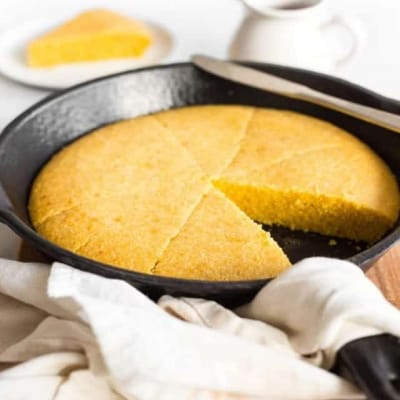
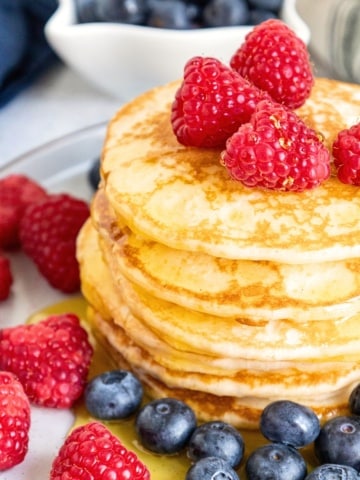
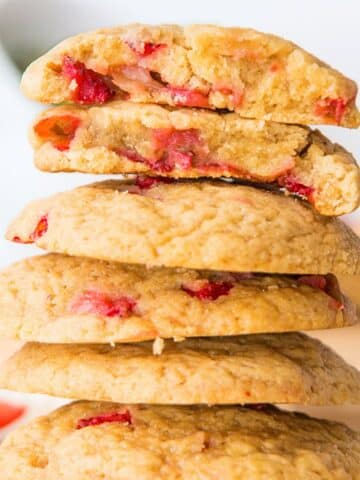
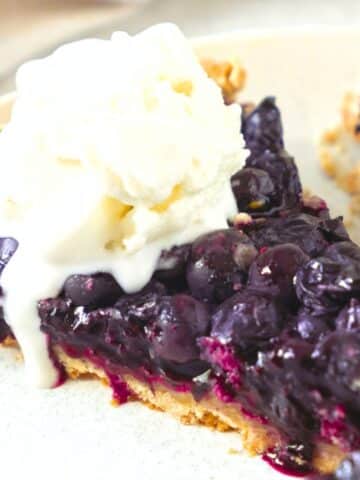
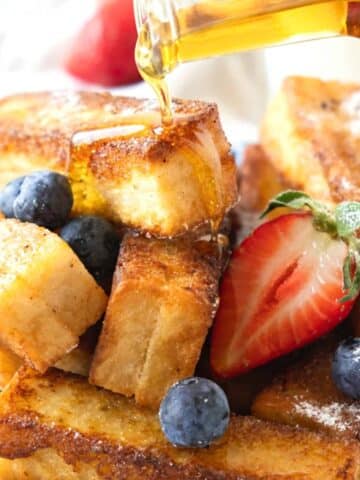
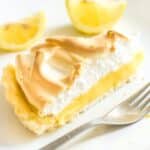

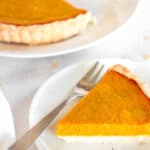



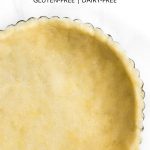
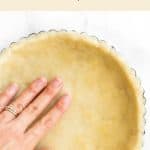
Haven’t made this yet but certainly will. My question is about pre-baking or blind baking the crust. Do you use pie weights or do you poke the crust with a fork to keep it from shrinking in the pie tin or is it not necessary?
Hi Deanna! You can simply use a fork to poke holes in the crust before blind baking the crust 🙂 Hope you enjoy it!
Hi Felicia, I enjoy your recipes, thank you very much. How do I make my own gluten free flour?
Hi Gloria! If you wish to make your own gluten-free all-purpose flour blend, you can try using this recipe: 5 parts rice flour, 3 parts tapioca starch, and 2 parts corn starch (mix all of this together). For each cup of GF all-purpose flour, make sure to add 1/4 teaspoon of xanthan gum to help bind the ingredients together.
Hi Felicia,
Thank you for posting this gluten free pasty recipe. One recipe I have made before never turns out good – so I thought I would make your recipe this time to try it.
I hoped it might stay together and not crumble with the added egg in the ingredients. It was much better – just as I thought.
But I have one question for you…..is 2/3 cup of water the correct amount?
I doubled your recipe to have a top and bottom crust for an apple pie. I used Bob’s Red Mill 1 to 1 Flour and I measured out 4 cups of flour. So this would mean 1 1/3 cups of water – but I only added 1/2 cup water and already the dough was too wet and sticky. So I did not add any more.
Just took it out of the oven…it smells amazing but we have not yet tasted it. Looks heavenly! I will let you know how it tastes when we try it tomorrow.
Hi Diana! Thanks for your note! You’ll only need to use the amount of water necessary to make sure the dough is pliable and not crumbly – the amount of water used will depend on the gluten-free flour blend used, the humidity where you live, and also the room temperature. Hope you enjoyed the crust in the end!!
Hi there! I’m excited to try this recipe! I am having an afternoon tea and want to try and pre-make as much as I can. Do you think the dough ball could be wrapped and refrigerated a day or two before I roll it out and bake? Thanks!
Hi Christina, yes you can definitely refrigerate the dough a day or two before rolling out and baking 🙂
This is the best gluten free pie crust I’ve ever made! And I have made quite a few. Honestly I would not have thought of using coconut oil but it works amazingly well and it also tastes fabulous! Thank you so much!!
PS – I used 1:1 flour from Bulk Barn (Canada) for most of the flour, and Bobs Red Mill GF flour for about 1/4 cup worth just because I was trying to use up the rest of a package,. It was excellent, as good as regular pie crust for sure, maybe better.
Hi Laurelle! Thank you so much for your sweet words – so happy to hear that! Glad you loved this crust as much as we do. Thanks for sharing your substitutions, and I hope to see you around the blog again sometime soon!
xx,
Felicia
So delish! Thank you!!! I made it with a flax egg and it worked perfectly.
Flax egg: 1 Tablespoon ground flax seed to 2.5 Tablespoons cold water. Whisk in bowl, set aside 5 mins to set. Equals 1 egg.
Hi Laurie! So happy to hear that! Thanks for letting me know how it went with the flax egg 🙂
Oh thank you! I was hoping someone has tried it with flax egg! I can’t wait to try this!!
I have never made a gluten free pie and not just consumed the filling. I use a crust just to hold things together but never actually eat it. This recipe changed that for me! It is so freaking delicious. It’s flaky and not grainy like so many other crusts I’ve made. THANK YOU THANK YOU THANK YOU!
Hi Darla! Thank you for your kind words! So happy to hear this pie crust recipe changed your mind about GF pie crusts! 🙂 YAY that you can finally enjoy eating the whole pie (filling and crust!). Happy 2023 to you, and hope to see you around the blog again soon!
I never comment on blog posts but my goodness I had too this time!! This has been the ONLY pie crust that works like, feels like, tastes like, bakes like actual real pie crust!! Thank you so much!! AND it isn’t bland like other gluten free pie crusts out there and especially store bought ones. Keep up the great work!! We are also a dairy free/gluten free family. 🙂
Hi, thank you sooo much for your lovely comment! Makes my day knowing that you and your family enjoyed this pie crust! YAY! Hope to see you around the blog again soon!
xx,
Felicia
Hello!
I just used this recipe to make mini cranberry tarts for my husband this thanksgiving, because he cannot have gluten and dairy in his diet. It was easy to make and I know I will be experimenting in the future, to see what else I can make using this dough. Thank you so much for sharing this wonderful recipe.
Hi Julia! So happy to hear that this pie crust worked in your mini cranberry tarts recipe! 🙂 Glad your husband can still enjoy pies and tarts this Thanksgiving even with the gf/df restrictions.
Hope to see you around the blog again sometime soon, and happy Thanksgiving to you and your fam!
xx,
Felicia
I have two questions – will using the coconut oil give the crust a coconut taste?
Also, I’m surprised it is 2 cups of flour for use one crust – my old recipe for non-GF was 2 cups of flour for two crusts – am I reading that correctly?
Hi Tamatha, for baking I always like using refined coconut oil (which has a neutral flavor) as opposed to extra virgin coconut oil (which has a more pronounced coconut taste and smell). Alternatively, you may also use vegan butter if you prefer, or if you are not lactose-intolerant, feel free to use normal butter instead. As for the amount of flour, yes 2 cups is correct, it will make a large crust. If you want smaller crusts, you can make 2 smaller and thinner crusts with this recipe.
This pie crust is awesome- easy to make and tastes great every time.
Hi Nora! I’m so happy to hear that! Thank you for sharing your feedback, and I hope to see you around the blog again sometime soon!
xx,
Felicia
Thank you so much for this recipe! I used it to make a ‘friendly’ veggie pizza, and it turned out great! I have a friend who can’t do egg, so I used a chia egg, and it worked out great! I used 1 tbsp of white chia seeds, and then added about 3 tbsp of water and let it sit for a few minutes. You couldn’t even tell that it had chia seeds instead of egg. 🙂
Hi Faith!
Thanks for your for your note, so happy to hear that this recipe worked just as well for a pizza base! 🙂 Plus, great tip on using white chia seeds to sub out the egg. Hope to see you on the blog again sometime soon!
xx,
Felicia
HI felecia
Thank you for sharing all these delicious gf recipes. I’m new to this journey.
I wanted to find out if the all purpose gf flour you used in the above has xantham gum in it already? If so, if the gf I have does not have, how much do you suggest using.
Thank you
?
Hi Yus, yes the GF flour blend I use has xanthan gum. I would recommend that if your GF blend doesnt have xanthan gum, to add 1/4 teaspoon of xanthan gum per cup GF flour. 🙂 All the best!
Thank you for this recipe. You explain the directions well and simply. I have an autoimmune disease and usually did ok with dairy (I have been gf for a long time now) as long as I didn’t overdo it but now I can’t seem to tolerate ANY dairy at all. Looking forward to exploring your recipes.
Hi Sara, very nice to meet you! So sorry to hear about not being to tolerate dairy at all now. My husband Juan also started not tolerating dairy well at all this year (and he just did a test that confirmed that), that’s why we started eating dairy-free at home and I’ve been testing and experimenting with plenty of dairy-free recipes this year. Hope you enjoy this pie crust as well as the other dairy-free recipes on the blog! Would love to hear how it goes if you do make it in the end, and definitely hope to see you around the blog again sometime soon 🙂 Happy weekend dear! xx, F.
Good morning Felicia,
Because this recipe allows for deep freezing, it is indeed a great idea to prepare these pie crusts in advance to be ready to be made into pies of the different flavor as and when required.
Keep up the great stuff you are putting up in your blog for the benefits of all your readers ( I have been so blessed by your posts in almost every way).
Thank you darling!
May God loves and blesses you richly!
Mum
Hi mummy! I’m so happy that you find the posts useful! That’s my main goal – to make each post as useful and informative as possible 🙂 Thank you for your never-ending support. Love you very much!